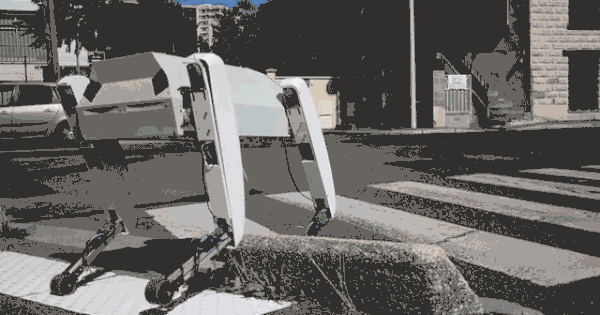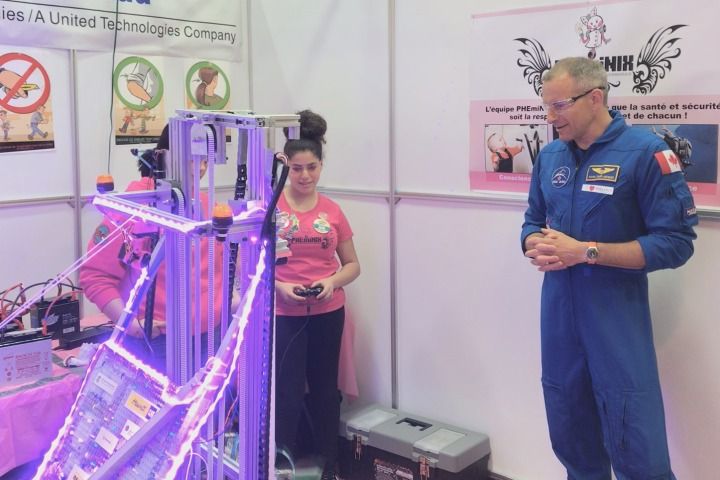The state of California will now allow driverless cars without safety drivers to be tested on public roads for the first time. Is a world full of driverless cars about to kick into gear?
Via NBC News MACH
The state of California will now allow driverless cars without safety drivers to be tested on public roads for the first time. Is a world full of driverless cars about to kick into gear?
Via NBC News MACH

Israel-based BrainQ is a new neurotech startup hoping to take on brain-computer interface (BCI) companies like Braintree founder Bryan Johnson’s Kernel and Silicon Valley billionaire Elon Musk’s Neuralink.
It’s not clear yet what Musk’s startup intends to do with the computer chips it plans to put in our heads, but Johnson’s startup says it is focused on developing “technologies to understand and treat neurological diseases in new and exciting ways.”
Whatever sector each company goes for, both plan to insert chips in our brains to connect us to computers — the consequences of which could have dramatic effects on human memory, intelligence, communication and many other areas that could rocket humanity forward, should they work out.

Pilots of such programs are underway in Finland and Canada. In rural Kenya, a basic income is managed by nonprofit GiveDirectly. India — with a population of more than 1.3 billion residents — is considering establishing a universal basic income.
Half of Americans want the government to send them weekly checks, regardless of their income or work.

Tokyo, Japan may have just become the first city to officially grant residence to an artificial intelligence (AI). The intelligence’s name is Shibuya Mirai and exists only as a chatbot on the popular Line messaging app. Mirai, which translates to ‘future’ from Japanese, joins Hanson Robotic’s “Sophia” as pioneering AI gaining statuses previously reserved for living, biological entities. The Kingdom of Saudi Arabia granted Sophia citizenship last month.
The Shibuya Ward of Tokyo released a statement through Microsoft saying, “His hobbies are taking pictures and observing people. And he loves talking with people… Please talk to him about anything.” The goal of Mirai is said to be to familiarize some of the 224,000 citizens of the district with the local government and give them an avenue to share opinions with officials.
Mirai is programmed to be a seven-year-old boy and can have text conversations with users and even “make light-hearted alterations to selfies he is sent,” according to Agence France Presse.



“To have the opportunity to talk to someone like that and to show what we did, it feels great,” said participant Ruby Novoa Forcier, 18.
Saint-Jacques’ visit was part of the Robotics FIRST (Favoriser l’Inspiration et la Reconnaissance des Sciences et de la Technologie) Quebec competition.
Around 5,000 students from different schools across Quebec, the United States and Europe got the chance to compete at the event.

We know that the universe is expanding, but a strange discrepancy in just how fast that expansion is occurring continues to confound physicists—and make them wonder whether there’s some new, unexplained physics afoot.
For every 3.3 million light years, or one megaparsec, the universe expands around another 70 kilometers per second faster. There are two discrepant measurements of this so-called “Hubble constant.” The light from the most distant parts of the universe reveals an expansion of 68 km/s per megaparsec, while a method taken from extrapolating data from nearby sources reveals a rate of 73 km/s per megaparsec. Scientists can’t explain this discrepancy by chance alone, which means they’re leaving something out, either in their experiments or in the laws of physics. A team of researchers have an idea for another measurement that could help close the gap between these numbers—by measuring how gravity affects the light from distant supernovae.
“If you want to tell the difference between new physics and unknown errors, you need another measurement,” study author Thomas Collett from the University of Portsmouth in the UK told Gizmodo. “If you have measurements that have completely independent methods and they’re all pointing in the same direction, you can robustly believe it’s new physics, not that they’re screwing up in the same way.”
March 2 (UPI) — Forty years after scientists first theoretically predicted the existence of a three-dimensional skyrmion, scientists have observed the particle in the lab.
The particle, observed cold quantum gas, isn’t a normal particle composed of electrons, protons and electrons. It is a quantum particle, the energy signature created by the interactions between a particle and the surrounding system.
In this instance, the quantum particle is a tangled knot of magnetic moments in the quantum gas.
Baidu’s AI research team has developed a nueral network that can mimic a voice with less than a minute long sample. The software can also change the voice into other genders and accents.
The Google of China, Baidu, has just released a white paper showing its latest development in artificial intelligence (AI): a program that can clone voices after analyzing even a seconds-long clip, using a neural network. Not only can the software mimic an input voice, but it can also change it to reflect another gender or even a different accent.